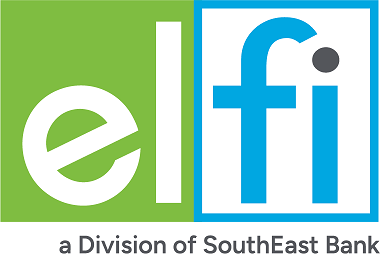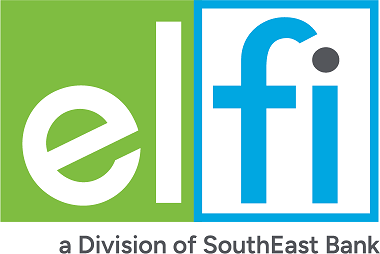College essays play an important role in the application process. Whether you're looking forward to writing them or feeling a bit unsure, think of them as your opportunity to share your story. You’ll likely need to write a personal statement, along with anywhere from two to ten additional essays on different topics.
Some essays will come with a clear prompt to guide you, while others may leave the topic entirely up to you. This is a golden opportunity to share who you are beyond your grades and test scores. Your personal statement allows you to show the admissions team what makes you unique and why you'd be a great fit for their school.
Writing these essays might seem like a big task, but they’re really your moment to shine. With the right approach, they can be a powerful tool to highlight your individuality and make a lasting impression. Take a deep breath, get to writing, and show them what makes you stand out!
Successful college essays serve two key purposes for admissions offices. They highlight your writing skills, with proficient writers often finding the process easier. Attention to detail is vital; error-free and focused writing is essential. Even if writing isn't your strength, maintaining correct grammar and spelling matters. Having peers or family proofread your work can help catch and rectify any mistakes effectively.
The second goal of an essay is to share insights about you that cannot be understood by looking at the rest of your application. Your essay could potentially be the piece of your college application that helps you stand out most amongst your peers and win the invitation to attend. This is your chance to allow the admissions officer to get to know you in a way that is not evident anywhere else within your submission materials such as test scores, transcripts or other documents provided.
Use this opportunity to share ideas, experiences and observations that will show the school that you have a demonstrated capacity to learn, grow and/or change. They want to see life through your eyes and how you perceive the world.
Your essay will give a glimpse into you as a person and will help others understand how you have used life’s experiences to navigate your own personal journey, one that has led you to this point in your life, applying to their school with aspirations of attending.
- Crafting a good college essay takes effort and planning.
- Begin by brainstorming, researching, and outlining ideas.
- Make sure your essay reflects your personality.
- Structure the essay to include a compelling introduction, body paragraphs that address how the prompt is met, and a conclusion that ties together all points made in the essay.
- Use descriptive language to capture attention and illustrate experiences clearly.
- Allow time for multiple drafts, review, and editing of essay prior to submission.
Using the SPARC Method to Write your Essays
Some people prefer using tools to start writing their personal statement. If you're one of them, consider using the SPARC method. SPARC stands for the five main topics that most essays include in some way. These topics showcase you as more than just an accomplished student but also as a unique individual making a difference in your personal world or the world around you. It's not necessary to have achieved something extraordinary or overcome terrible hardships to get your essay noticed, even at an Ivy League institution.
SPARC:
S = Seized Opportunity
- This speaks to your ability to be aware of the world around you and this awareness gave you an insight into an opportunity that might have otherwise been missed. Did you do something noteworthy even if it was in elementary or middle school, share it? If so, what was this opportunity? How did you use it to your advantage or for the advantage of helping others?
P = Pursue Goals and Opportunities Despite Obstacles
- This topic is a good one if you can speak to a specific experience in your life where you achieved something that everyone else would have thought impossible given your circumstances or challenges in your way. Here you would speak to persistence, determination, and downright grit. Not everyone possesses these skills, which is why they are important to share.
A = Ask Questions of the World
- It’s those people who are always questioning the world, who are the ones making the biggest impacts. These are the people who see beyond what is and imagine what could be. Have you had an experience where you didn’t let the status quo suffice, you questioned a problem, issue or need and then worked to create a solution? If so, colleges want to hear all about this type of achievement.
R = Risks, Take Smart Risks
- The old adage “the biggest risk is not to take any risks” has some truth to it. Those who don’t try, not only avoid failing they avoid succeeding as well. Taking calculated risks, those where you are making informed decisions, knowing full well the costs, in addition to the potential gains, is how we grow. Have you stepped out of your comfort zone and taken a risk? Even if you didn’t succeed, surely you learned something valuable from the experience. No effort is ever void of learning. The willingness to try and the ability to learn from the experience are valuable traits that college admissions teams look for in incoming students.
C = Create with Limited Resources
- Are you scrappy? Can you work with a little and produce a lot? Those resourceful people who are not deterred by limited resources demonstrate a tenacity to press on and succeed despite the odds, are rare indeed. Have you used your problem-solving skills to create a solution to a problem by being resourceful? What was the problem and how did you solve it? Creativity in this way is an invaluable characteristic that cannot be taught. Colleges and universities seek out students with these traits.
Sample Supplemental Essay Prompts
Essay prompts are essay topics given to not only help you start writing if you are struggling to find something to write about, but also help the schools to know more about you with respect to whatever subject they prompt. Prompts vary from topics meant to elicit a SPARC-type response to more creative prompts meant to encourage an introspective answer. Samples of paraphrased prompts include:
SPARC Prompts:
- Share an experience, where you learned something valuable after overcoming an obstacle.
- Have you ever challenged a belief?
- Give an example of a time when you solved a problem.
- Tell us about a time when you experienced personal growth.
- What are you passionate about and why?
- Who is someone you admire and why?
- Why are you applying to our school?
Creative Prompts:
- What is a book you love and why?
- Name an extracurricular activity that is the most meaningful to you.
- How has having gratitude affected or motivated you?
- Share a song that describes your life right now?
- Tell us what’s so easy as pie.
- What is the truest thing you know?
- What historical event do you wish you could’ve been present for?
- What well-known person or fictional character would you like to meet?
- Tell us about an unusual talent you have and how you use it.
Elements of 5 Winning Ivy League Essays
If you read any number of the sample essays available on the internet, you will start to notice that those noted for being the most successful possess some of the same fundamental elements. Those elements are:
- Writing Skills: The ability to communicate clearly and write in a manner that’s not only free of spelling and grammar errors but also flows well and keeps the reader captivated.
- Perceptive Insights: An understanding that life is more than classes and grades. These essays share insights and experiences that have sparked a teachable moment, illuminating a universal truth or big picture view of life.
- Capacity to Learn: Willingness to change and grow. Nothing ever stays the same, so a student who shows a desire to evolve is important. In one way or another, successful essays will typically demonstrate growth, acceptance, and the capacity to learn and move on.
- Quiet Confidence: Grandiose subject matter and/or achievements are not necessarily required to impress college admissions offices. This is probably the most surprising element, as most people assume they need to share their biggest accomplishments to impress college admissions officers. This isn’t entirely true, as you will see in our 5 examples below, benign subject matter such as a label maker or the letter “s” are also just as capable of captivating the reader and can communicate important personal and/or individual accomplishments just the same.
Read about some essays that were identified as successful in the admissions process at an Ivy League school. See how they do an excellent job of capturing all 4 of these elements noted above.
Essay Theme 1 – Growth Through Empathy
In a beautifully illustrated story of observations and experiences, one student shared how someone he met profoundly impacted his life. He first tells how this person entered their family and quickly became a beloved addition; only to discover she was about to struggle with a life-threatening diagnosis followed by aggressive medical treatment shortly thereafter. This was told with the writing skills of a novelist, gripping the reader until the very end; while vividly illustrating the evolution of life and change. Watching this person change from a vivacious individual to one fighting for her life, caused the essay writer to see life through the eye of another and in doing so, gain a stronger appreciation of his own.
Essay Theme 2 – Development of Wisdom and Understanding
Writing about a label maker would not seem like an ideal subject to talk about, especially at an Ivy, but this student did a phenomenal job explaining how his love for labeling items: books, tools, etc. caused him to think about how the world labels people and groups. The essay opens with the student thrilled to have received his new holiday gift (a label maker), and how he uses it to label everything he can. Using graphic imagery, the reader can literally see all the labels in their mind’s eye. The student is stopped cold when he realizes he can’t label people or groups as easily as things. The comparison to labeling items vs. people allowed the essay writer to tackle a challenging topic while keeping the overall tone light and digestible.
Essay Theme 3 – Overcoming Tragedy with Wit
Sometimes life is so hard that if we didn’t interject humor, we might lose our minds. This student who wrote this essay did just that, sharing her raw feelings as she wrote about the heart-wrenching story of losing a parent too soon. The essay topic is based upon the letter “s” and how she now despises the “s” in parent(s), having only one parent now. Taking out her pain on the letter “s”, she progresses through the stages of grief until she gets to acceptance and discovers that two “s’s” are better than one when she finds her passion and joy again. Without seeking sympathy, this student shared something very personal in her essay to show admissions officers that she has the capacity to overcome extreme challenges and not only survive but thrive.
Essay Theme 4 – From Reluctance to Change
This light-hearted easy takes the form of a mock trial. Using the student’s family members to make up the court, the defendant on trial being math. Math is accused of being irrelevant and unnecessary. The essay writer is the prosecutor, and his father is the defendant’s counsel. His mother is the presiding judge and his siblings are the jury. The essay takes us through the trial, during which, after objectively contemplating all the evidence; the student changes his mind about math, now understanding the true necessity for it in its various forms.
Essay Theme 5 – Learning by Experience
The student who wrote this essay shared his experiences of traveling abroad to Asia over two consecutive summers. The first he visits a metropolitan area and the second a rural farming community. He writes about his experiences in both, but especially the farming community. Being a city kid, he didn’t expect to identify with the farmers but found that people of all kinds are fundamentally the same when we remove the outer layers and our world views. He used this eye-opening discovery to share his ability to grow and learn, even in the most uncommon of circumstances.
What We Learn from these Best College Essays
All these essays share some form of SPARC content, but they don’t necessarily share a great achievement. They are humble, raw, humorous, and truthful. These essays stand out not because of some outstanding achievement but rather because they share the experience of being human in one form or another. At the end of the day, traditional achievements (good grades, recognition, etc.) can be expressed in a resume, transcript, or test score, but it’s our true character that shines the most and only that can be conveyed in your essay. Don’t despise the essays but cherish them as your opportunity to stand out not by your achievements but simply by the wonderful person that you are.




















